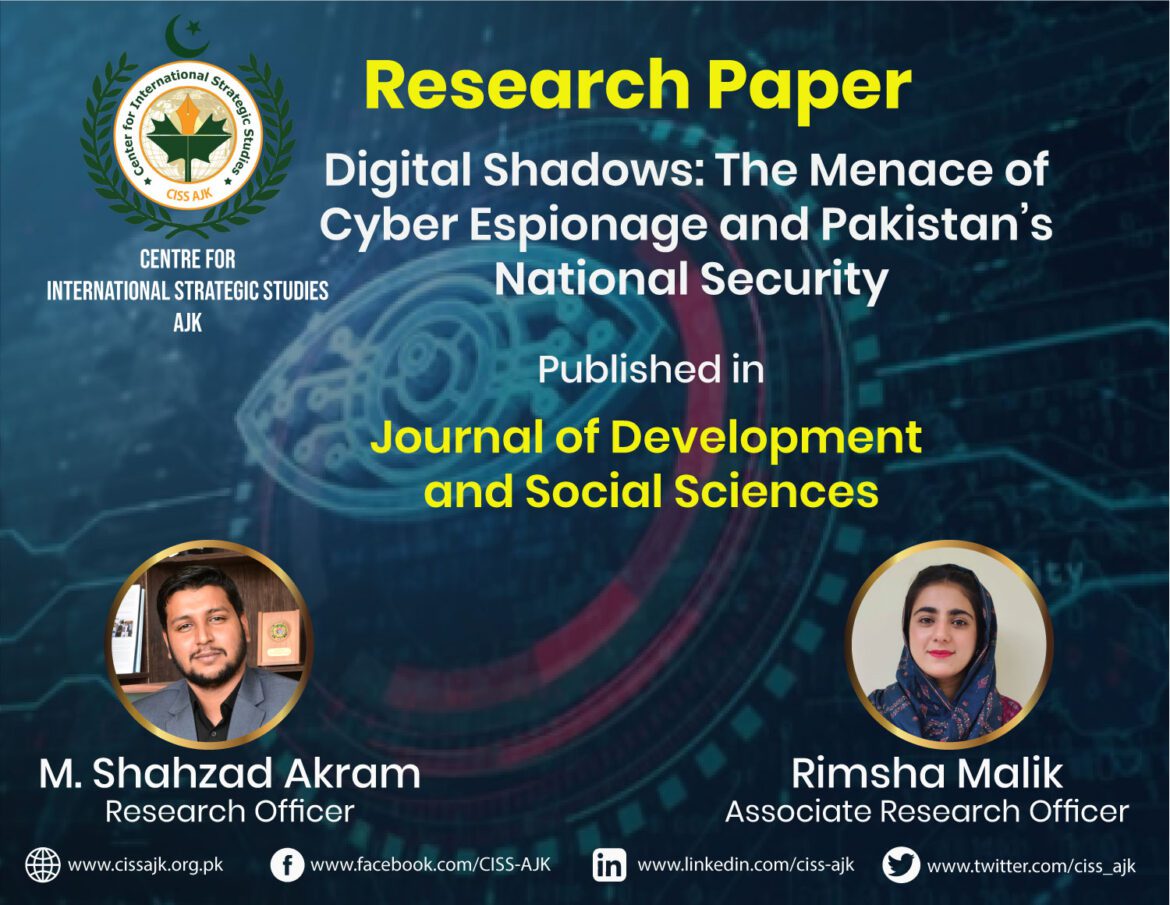711
This study aims to comprehensively explore the phenomenon of cyber espionage and its profound impact on Pakistan’s national security, shedding light on its implications for international relations, military and nuclear security, economic stability, and critical infrastructure. Cyber espionage, as conducted among nation-states, involves the surreptitious use of computer-based attacks and intelligence-gathering techniques by one country to obtain sensitive information or a competitive advantage over another. This clandestine activity has redefined the nature of modern warfare, necessitating a deeper understanding of its consequences.The research methodology employed is qualitative in nature. The systematic literature review entails a meticulous examination of data sources, encompassing journal articles and various websites. The findings underscore the gravity of cyber espionage as a threat to Pakistan’s sovereignty, emphasizing the need for a proactive stance in safeguarding sensitive data and critical infrastructure. This study recommends the development of robust cybersecurity measures, regular security assessments, Implementingan incident response plan, fostering a culture of security,and Workingwith law enforcementas essential steps to counter the evolving threat landscape posed by cyber espionage.



